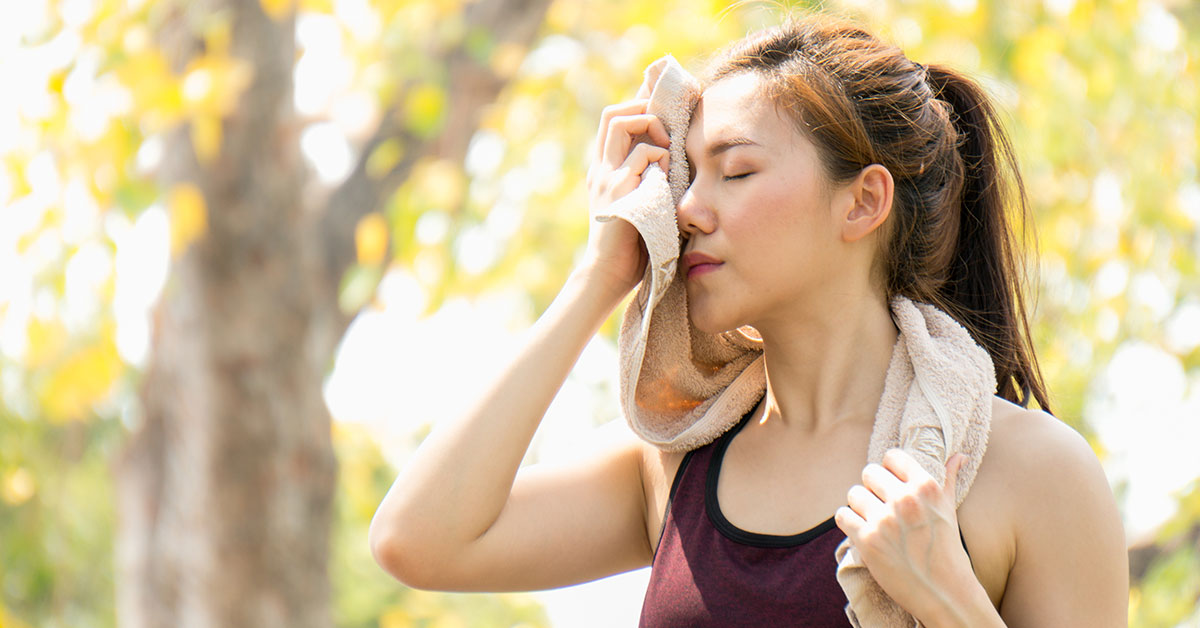
Sweating is a product of your body’s natural ability to self-regulate your internal temperature. However, when sweat production exceeds the necessary level to maintain a stable body temperature, you may experience excessive sweating or hyperhidrosis.
Primary factors like family history, age of onset, frequency and duration of episodes, and disruption of increased sweating may trigger hyperhidrosis.
There may also be secondary or medical causes, such as fever, pituitary disorders, hyperthyroidism, leukemia, or menopause.
Surgery may be one viable option to treat hyperhidrosis. However, people may consider other alternatives to treat this ailment.
This article discusses alternative ways to deal with hyperhidrosis.
Sweat is odorless, but it may be connected to bacterial growth and decomposition that causes body odor. Excessive sweating may thus lead to higher bacterial growth that may be detrimental to one’s health.
Bacteria may also thrive in warm, moist places, like armpits or feet, or react with sweat that dries on the skin. Bathing or showering daily removes excess sweat, decreasing the likelihood of bacterial growth and body odor.
A 2016 study published on PeerJ noted that the human armpit could contain a high biomass bacterial community. Antiperspirants may reduce this bacterial biomass or block the sweat glands that release an unpleasant odor when in contact with bacteria.
The same study also revealed that those who do not use deodorants or antiperspirants experience increased bacterial density in the armpits. Meanwhile, when a person uses deodorants or antiperspirants, bacterial density decreases.
Coffee might be a good idea to start your day. However, the drink may also lead to excessive sweating due to increased body temperature.
A 2011 study on active athletes showed that those who consumed caffeine before performing exercises had significantly higher body temperature. The same group also had higher sweat gland output than those who did not consume caffeine.
According to a University of Miami article, you should consider drinking other coffee alternatives like tea, matcha, or kombucha.
While clothing does not necessarily treat hyperhidrosis, suitable clothing material may help keep excess sweat off your skin.
Wear natural materials like silk, cotton, or wool to help your skin breathe and keep a cool temperature. When performing exercises, choose lightweight fabrics that allow sweat to evaporate instead of sticking onto the cloth.
Choose socks that remove sweat from your skin, such as cotton, and ensure that you change your socks daily.
When wearing shoes, dry them before using them again. Consider changing pairs every two days.
The International Hyperhidrosis Society recommends clothing options that alleviate excessive sweating. These products may be available at a discount.

According to the Mayo Clinic, you may experience sweating when you are under stress.
Although stress-induced sweating may be expected, excessive sweating may disrupt your daily routine and cause you to be emotionally distressed.
Some ways to deal with hyperhidrosis-induced stress include exercise or meditation. Almost any type of exercise, even if it is a 20-minute walk along the park, may clear your mind and even calm your sweat glands.
If you prefer a quieter method, sitting in a room free from distractions may also be an excellent way to reduce stress.
You may also attend yoga classes or use biofeedback methods to control body functions as stress-reducing activities.
See Also: Different Forms of Physical Therapy and Their Advantages:
Some people might find conventional methods to treat hyperhidrosis, such as medication and surgery, more effective than alternative methods.
Still, such methods may be complicated for others to undergo. Thus, even simple alternative ways can help alleviate the symptoms of excessive sweating.
The International Hyperhidrosis Society offers several alternative treatments for hyperhidrosis like miraDry, Qbrexza, and Botox.
If you or someone close has hyperhidrosis and is uncertain of the treatment, consult our team of medical professionals at Family Medical Austin.
https://news.umiamihealth.org/en/are-there-healthy-alternatives-to-coffee-and-energy-drinks/
https://doi.org/10.1089/jmf.2010.1534
https://dx.doi.org/10.1007%2Fs13555-016-0148-z
https://doi.org/10.1038/jid.2012.118
https://www.mayoclinic.org/symptoms/excessive-sweating/basics/causes/sym-20050780